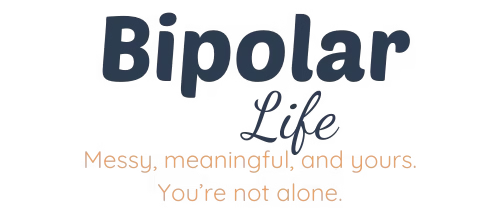Bipolar Doesn’t Mean Broken: Redefining Myself
1. The Quiet Shame We Carry
For a long time, I thought having bipolar disorder meant there was something deeply wrong with me. I didn’t always say it out loud, and I certainly didn’t share it with others. Some of my own family still don’t know.
The feeling sat heavy inside me, like a quiet shame I carried everywhere. It wasn’t just the diagnosis—it was the way I saw myself because of it. This wasn’t something that could be “cured,” and most people didn’t understand enough for it to feel like a safe topic.
I thought I was broken. But slowly, and with a lot of unlearning, I’ve started to see myself differently. Not as broken, but as human. As whole. Just different.
2. The Weight of the Word “Broken”
The word “broken” is so final. It suggests something beyond repair. It carries the weight of being useless, damaged—not whole or complete.
And yet, I was still here—living, feeling, trying. I had hard days, yes. But I also had beautiful ones. So why was I so willing to define myself by my lowest points?
Maybe it’s because the world around me did that too. It whispered that mental illness was weakness. That moods made me unreliable. That emotions made me unstable. That I wasn’t “emotionally intelligent.”
But none of that was the full truth.
3. Feeling Deeply Isn’t a Flaw
Living with bipolar disorder means my emotions have volume—they can be intense, fast-moving, surprising.
But it also means I feel things deeply. I notice small details. I connect fiercely. When I connect, I’m loyal to a fault. If I love, it’s with my entire being. I don’t do half measures.
I create, I reflect, I care. I’ve learned to see those parts of myself not as side effects, but as evidence of a brain that experiences the world vividly.
I live in color—there are very few dull moments in my life. It also means I see things more in black and white than I think others do. And while it hasn’t always been easy, that doesn’t make me broken.
It just makes me… me.
4. Rewriting the Story
Redefining myself hasn’t been a straight path. There were setbacks and doubts.
There were moments when I slipped back into old stories—the ones that said I wasn’t enough. Times when I let someone else define who I was. Times when I believed the lie that I would never overcome—myself, my faults, my mistakes.
But I’ve also had moments of clarity, where I could see myself with gentler eyes. Therapy helped. So did honest conversations, long walks, quiet journaling, and the bravery of others who shared their truths before me.
Piece by piece, I’ve rebuilt the way I see myself. I’ve learned to accept the reflection in the mirror—no filter, no shame.
5. Naming the Good
One of the most healing shifts for me has been learning to name the good—and accept the bad.
To recognize that my lived experience with bipolar has shaped parts of me that I genuinely value:
- Resilience
- Creativity
- Empathy
- Insight
- A sense of humor that survives even on the hard days
I don’t celebrate the pain, but I do celebrate who I’ve become because I’ve lived through it. Sometimes, just surviving is the best part of yourself.
I’ve learned that I am a mix of emotions and experiences, and each one has built a step on the ladder of healing.
The parts of myself that I value don’t have to hold value for others. This is my story—and I know I am better today than I was yesterday.
6. Whole, Not Fixed
I no longer aim to be “fixed.” I aim to be me.
That means embracing the whole of who I am—not just the parts others want to focus on. That includes the mess, the complexity, the beauty, and the growth.
Bipolar is not all of me, but it is a part of me. And I’m learning to make peace with that part—to hold it with kindness instead of shame.
I’m starting to feel comfortable in my own skin, and I’m developing a quiet pride in surviving—especially when life feels like a rollercoaster.
For me, that rollercoaster holds valuable lessons, along with wild, exciting, and intense experiences.
Finding balance doesn’t mean I have to live on the merry-go-round. It means learning how to ride the rollercoaster in a way that feels safer and less dangerous.
7. You Are Not Broken
To anyone else who’s felt broken: you’re not.
You might be tired. You might be healing. You might be figuring it out one day at a time. But you’re not broken. You’re still here. And that, in itself, is something powerful.
It might take time to learn how to live outside the shame the world projects onto us. But when you do, the world starts to look a lot more colorful.
It doesn’t happen overnight. It took me years to unlearn being someone else—someone I thought I had to be to be accepted.
Finding—and refinding—myself took time. But the person I’ve uncovered? She’s not so bad.
In fact, I kind of like her.
💬 Want to Share Your Story?
If you’ve ever felt broken, stuck, or misunderstood—know that you’re not alone. Leave a comment or share this with someone who might need to hear it. Together, we can help replace shame with compassion, and silence with truth.
